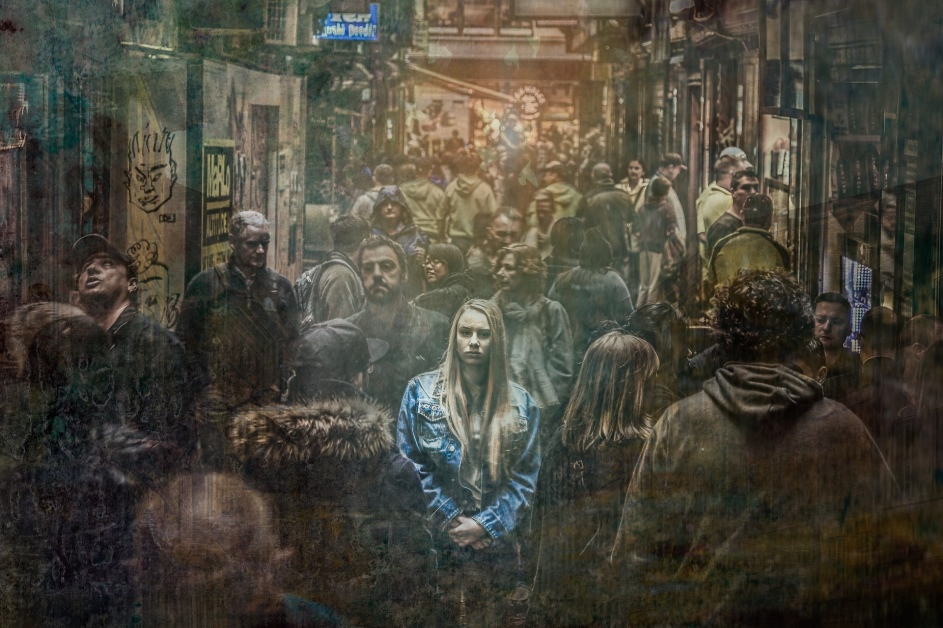
When you Feel Forgotten by God
A Look at Psalm 13
I find a lot of comfort in the Psalms. In fact, I find so much comfort that I’ve been working on a book of devotions about the Psalms of David. In my youth I didn’t have time for them. They didn’t touch me. Now that I’m older, I have no idea what my young self was thinking. Older me just about lives in the Psalms. Almost every human condition is addressed in the Psalms, and that includes fear. So, every few posts I’m going to study a Psalm that might give your soul some comfort. The first, Psalm 13, is good if you feel forgotten by God in your struggles, whatever they may be.
Psalm 13 (NIV)
For the director of music. A psalm of David.
1 How long, LORD? Will you forget me forever?
How long will you hide your face from me?
2 How long must I wrestle with my thoughts
and day after day have sorrow in my heart?
How long will my enemy triumph over me?
3 Look on me and answer, LORD my God.
Give light to my eyes, or I will sleep in death,
4 and my enemy will say, “I have overcome him,”
and my foes will rejoice when I fall.
5 But I trust in your unfailing love;
my heart rejoices in your salvation.
6 I will sing the LORD’s praise,
for he has been good to me.
Has God forgotten me?
Psalm 13 is a good place to start in our journey through the Psalms. It’s short and simple. It starts with a question David asks God, and I think, if we’re honest, most of us have asked this same question. “How long, Lord? Will you forget me forever?”
That’s a pretty bold question. Honest and raw. Do you ever feel that? When I am in the deepest recesses of anxiety and fear, I feel alone. I feel like God is distant, a wrathful deity and not one who loves me. Maybe anxiety makes me feel this way, or maybe moments of feeling this way cause the anxiety. It’s hard to say. But David, as a king facing enemies, a king trying to protect a small kingdom in a big, warring world, felt fear. He felt alone. He wasn’t always sure God was there. Although he has some amazing stories of God’s care and protection and rescues, he sometimes wondered if God had abandoned him.
I don’t know why his failure gives me a little hope, but there it is. Knowing the man after God’s own heart felt the full gamut of emotions, especially the more difficult ones, brings me comfort. I hope you find comfort in David’s humanity and vulnerability, too.
See me, God
In verse three he asks God to look at him, to answer him. In many ancient pagan religions, rituals were meant to turn the eyes of the gods away. A person forgotten by the gods was safer than one who attracted attention, because pagan gods were petty and didn’t always think highly of humans. Talk about anxiety—imagine thinking every drought, every crop failure, every illness was a god out to punish you for a deed done wrong. The pagan worship systems were not happy places.
But David and Israel had a very different God. Even though they were sinful—and the sacrifices happening at the tabernacle day after day never let them forget they were sinful—they called on God. The Psalms have been used by the Jewish people and then the Christians for centuries as songs to call God’s attention toward them, to be seen by the Creator God of the universe. Calls for protection, victory, rescue, for God to see them and fix their world. It is good when God sees us, because He follows up by caring for the needs He sees.

Who holds your life?
So David wants to be seen, and then he says something interesting. “Give light to my eyes, or I will sleep in death,” says my NIV. Light to my eyes. The spark of life can be seen in the light in someone’s eyes. David never forgets that his very life is dependent on God. If his eyes have light, God is there. He knows he cannot live without God personally lighting his eyes and making his body function. Do you ever take a breath and know, just by that very breath, that God is here, thinking of you, caring for you? Each breath is a wondrous sign that God is here.
So he’s facing enemies, and he’s feeling forgotten by God, but he still knows who holds his life. I think, as anxious Christians, we should hold tight to this Psalm. David knows some important truths about who God is and what role God plays in his very existence, but he still lets God know he’s afraid.
Enemies? Really?
For centuries men and women have read and sung Psalms about enemies, although many of us don’t really have enemies. Not human ones, at least. It might be easy to gloss over those parts as something cultural, something ancient we no longer have to worry about. First, I hope that’s true. There are Christians in this world who definitely have literal human enemies after their lives. And those parts of the world grow. Before my lifetime ends, I might live in a world where I face human enemies, and if so, these Psalms are very literally real.
But even now, I have other enemies. Subtler ones. For my readers with anxiety, that’s an enemy. There are political agendas out there meant to cause God’s people to compromise, to fall in line with an ever-darkening world. So yes, news and social media can become a powerful enemy.
How do we handle these enemies, especially the subtle ones? David has a pretty simple answer. Call on God. Throw your struggles at his feet and then climb into his hands for safety, knowing that being close to the Living God is the safest place to be. Surround yourself with God’s Word and His people, both great weapons against God’s—and your—enemies.
God loves Messy You
Is it okay, dear friend, to let God know you’re afraid. Pour out your heart. Feel no shame in calling to God, wishing for his eyes on you, telling him your fears. He knows them anyway, and he chose to love you even with your tendency to be fearful or to stray or to sin. God is not sitting out there somewhere waiting for you to be your best you so he can really love you. He loves broken, anxious, messy you. Nobody was messier than David, and God loved him. Trust that. (And oh, I’m saying these words to myself as much as you. Why are these truths so hard to remember?? Why is is easier to feel forgotten by God?)
You don’t have to clean up and then come to God. He wants to do the cleaning up part. His fingers want to wipe away your tears. His lips want to touch your forehead when you’re afraid. His hands want to hold you close when you can’t do more than curl up and wait for better days. He wants to participate—even to do it all!—when it comes to turning messy you into beautiful you.
His fingers want to wipe away your tears. His lips want to touch your forehead when you’re afraid. His hands want to hold you close when you can’t do more than curl up and wait for better days.
Thanksgiving on Credit
David finishes many of his prayers with praise. I call it thanksgiving on credit. God hasn’t answered this prayer yet. We don’t see God fixing it all, not within the words. But David knows God. He knows that God loves both David and Israel. He looks back at what he knows, and he thanks God in advance, knowing God isn’t going to let him down this time. Does God’s intervention always turn out like we want? Nope. But David praises God here for his unfailing love. That we can count on. He draws close to the brokenhearted. (Ps. 34:18) You can bank on that. He remembers you are dust. (Ps. 103:14) Absolutely a truth.
Sit with this Psalm today. In case you were hoping for a three-step system to get through the morning without anxiety, I apologize, but I think meditating on God’s Word is one of the best ways to fight if you feel forgotten in your fear. If the Word is a double-edged sword (Hebrew 4:12) that can judge our attitudes and thoughts and penetrate body and soul, then one of the best weapons to excise fear from our spirit is the Word. So I won’t apologize for spending time in the Word, wielding it like a scalpel to cut away wrong thinking and make room for peace. Join me.
If something new strikes you as you read this Psalm and work through it, comment below. The Psalms are my happy place, and I love new insights into them.
And lest we get too Psalm-centric here, let Isaiah throw in a word from God himself:
Isaiah 49:14-16 But Zion said, “The LORD has forsaken me, the Lord has forgotten me.” [God responds] “Can a mother forget the baby at her breast and have no compassion on the child she has borne? Though she may forget, I will not forget you! See, I have engraved you on the palms of my hands...”




